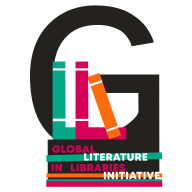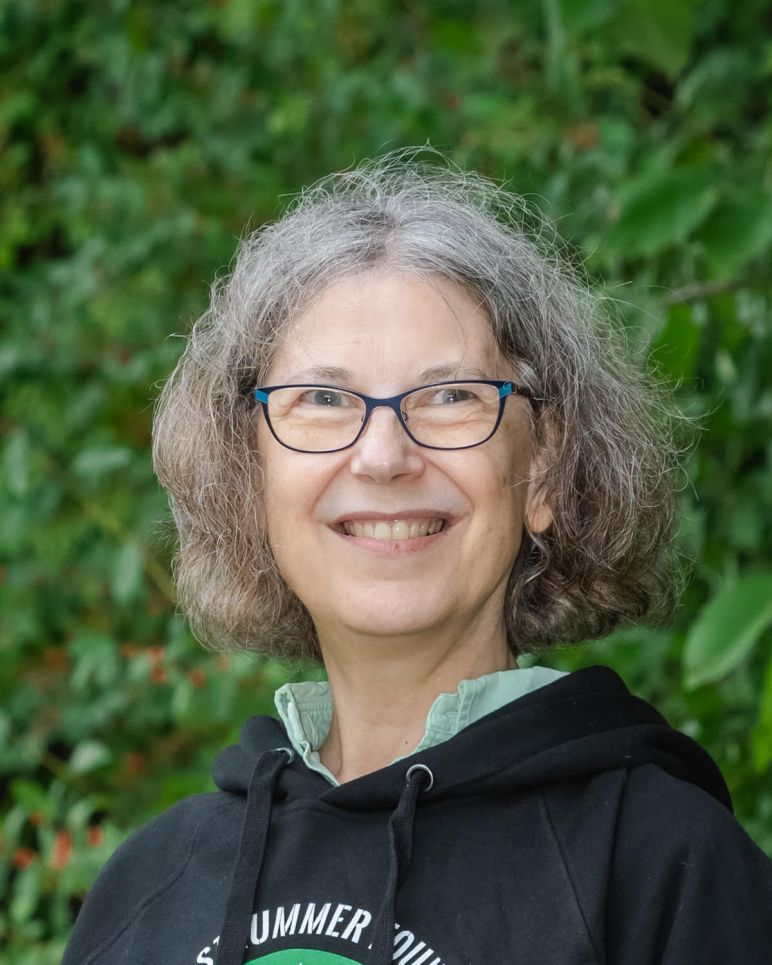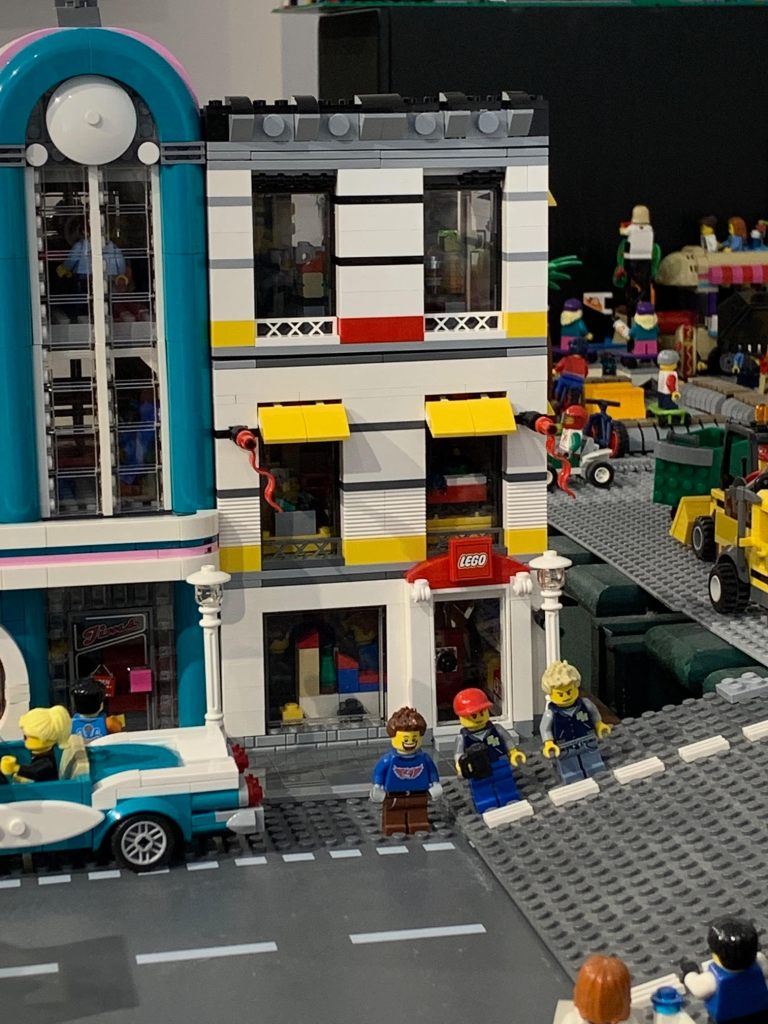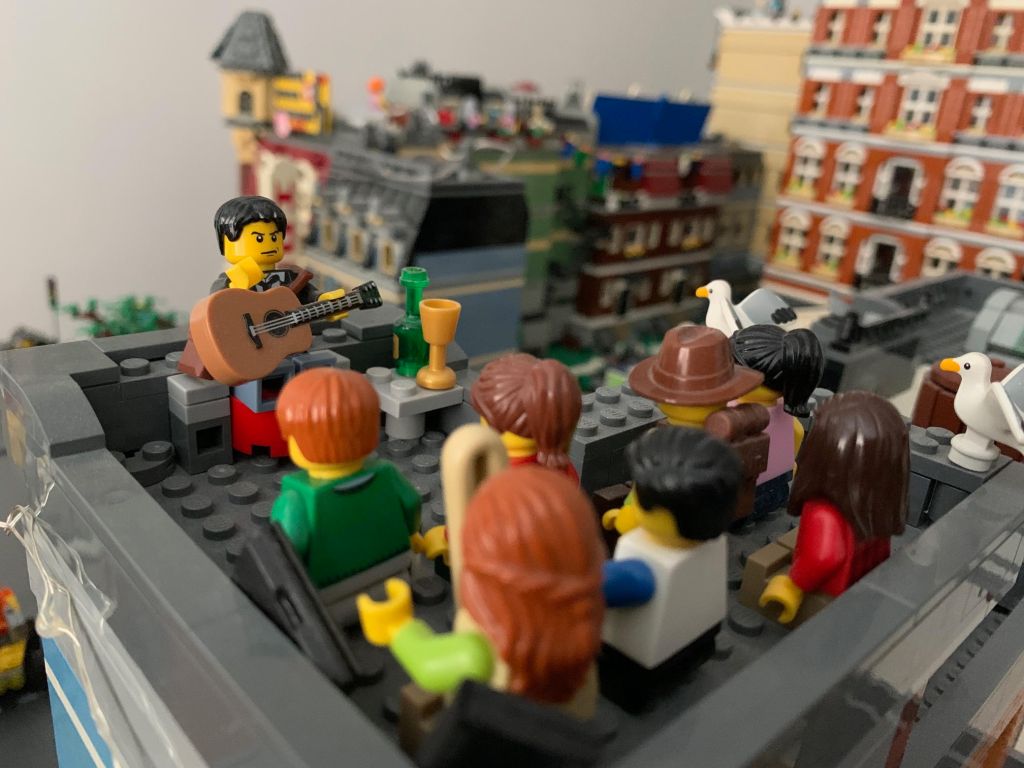Lyn Miller-Lachmann is a multiply published author whose books include Torch, Moonwalking, Gringolandia, and Rogue, among many. She also is the translator (primarily from Portuguese and also Spanish into English) of a number of books for young readers, including Three Balls of Wool, Lines, Squiggles, Letters, Words, and Pardalita, a 2024 Mildred L. Batchelder Honor Book and 2024 GLLI YA Translated Book Award shortlisted title. She earned Master’s degrees in Library Science and Fine Arts in Writing for Children and Young Adults, has taught a number of subjects to middle and high school students, and hosted a radio show on the arts. Last but very much not least, I’m thrilled to announce that she will be joining us as a member of the #WorldKidLit Wednesday/Weekend reviewing team.
NM: Congratulations on all the honors and accolades for Pardalita! You’re a polymath, with a wide range of interests and skills; indeed, I’m struck by the many random points in common that you and I share in our bios, including, of course, being translators. Could you tell us about your path to becoming an author and translator?
LML: Thank you! My path to becoming an author was long and winding, with many manuscripts in the trunk or on my hard drive that will never see the light of day. In fact, I gave up writing fiction altogether for ten years because of all the rejections and, specifically, having a contract offer withdrawn for the novel that would become Gringolandia 19 years and a complete rewrite later. I took a shorter path to becoming a translator, however.
In 2012 my husband and I moved to Portugal so he could teach classes at a graduate institute of the University of Lisbon as a Fulbright Fellow, and while he taught (in English), I took classes in Portuguese for immigrants. My immersion continued each year thereafter until the pandemic, because the university brought him back in the spring to teach a three-week course. Several months following my return in 2014, I was at a meeting of the PEN America Children and Young Adult Books Committee where Claudia Bedrick of Enchanted Lion spoke about her work publishing translations. That afternoon, she was looking for someone to translate a picture book from Portugal, and I raised my hand. That book became The World in a Second, which made several end-of-year lists. Claudia has been a wonderful mentor, and I’m honored to have worked on quite a few books for Enchanted Lion over the years.
NM: How did Pardalita find you?
LML: I had done a couple of reader reports for Levine Querido, and after the Bologna Children’s Book Fair in 2022, two different editors—Megan Maria McCullough and Nick Thomas—approached me with three books each that they’d picked up at the fair. Reading six books in all allowed me to weigh each of them carefully as individual possibilities and in relation to each other. They were all very different—ranging from a picture book by a popular Brazilian singer to a graphic-novel biography of a pioneering woman diplomat in Brazil to several novels with LGBTQ+ protagonists. We all fell in love with Pardalita because of its unusual format—the hybrid graphic novel/verse novel—and the subtle beauty of the story.
NM: A coming-of-age YA story about a Portuguese teen who falls in love with another girl in her school, Pardalita is written in a fascinating hybrid form that can best be described as a graphic novel plus prose-poem journal. Did this pose challenges for the translation—and were there other challenges along the way to bringing the book to young English readers?
LML: Graphic novels and verse novels pose different challenges for translators. With graphic novels, brevity is important; the text needs to fit into speech bubbles and read crisply, like natural dialogue and internal monologue. People say that verse novels are hard to translate, to capture the poetic voice of the original. I felt I had a bit of an advantage because I’d already written two verse novels of my own. For my first, Moonwalking, I’d worked with Zetta Elliott, who’s a brilliant poet and who taught me a lot about the format. At the same time that I translated Pardalita, I was also working on Eyes Open, a verse novel that’s set in Portugal but more than 50 years ago, during the right-wing Salazar dictatorship rather than today. Both of these writing experiences prepared me for the poetry of Pardalita.
NM: You’ve taught English, social studies, American Jewish History, Jewish studies, and playwriting. What attracted you to these different fields and to teaching them?
LML: History is my obsession. Growing up, I read everything I could get my hands on about World War II and in high school took every history class offered by my school. I majored in history and when I left a graduate program I became a history teacher in New York City. When my husband got a job in Wisconsin and I couldn’t find a public school teaching job, I took part-time work that became available, including teaching Jewish middle and high schoolers on Sundays and after school. I especially enjoyed teaching American Jewish history through group projects, including dividing my students into colonial-era “families” who would debate and make decisions for a new synagogue in the years before the American Revolution. Playwriting was an elective in my Sunday school program, and again it allowed us to be creative with the history. After moving back to New York City in 2015, I started teaching creative writing workshops in middle and high schools, but now I’m mostly teaching through the Highlights Foundation—my first experience of teaching writing to anyone over the age of 16. But what’s great about teaching young people is their enthusiasm and willingness to try anything, and it also puts me in contact with my readers.
NM: From 2007-2015, you were the assistant host for a radio show about Latin American and Spanish music, poetry, and history, which is very cool! Did you focus on any specific genres? Do you have a piece or two of music from the show that stick out to you now, almost a decade later or that you might recommend readers listen to? And perhaps a poem or two as well?
LML: Our focus was from the 1930s onward (though we did cover José Martí) and the tradition of protest music and poetry in Spain and Latin America. It was a bilingual program; my co-host, who was Mexican American and worked as an interpreter, read the Spanish and I read the English for poetry, although with music we played recordings and translated them for our listeners. When I returned from Portugal in 2013, I started translating Portuguese and Brazilian songs, including the works of Chico Buarque, Caetano Veloso, Maria Bethânia, Gilberto Gil, and Milton Nascimento from Brazil and Zeca Afonso from Portugal among others. The Portuguese singer/songwriter José “Zeca” Afonso wrote the song that signaled the beginning of the 1974 Carnation Revolution that ended the dictatorship in Portugal, “Grândola Vila Morena,” and April 25, 2024 is the 50th anniversary of that revolution. There’s a lot of music I could recommend, but in my novel Eyes Open I allude to another one of Zeca’s songs, “Os Vampiros” (“Vampires”). As far as poetry, both Pardalita and Eyes Open present the work of Sophia de Mello Breyner Andresen, a versatile Portuguese writer who wrote children’s books, love poems, poetry inspired by the classics, and verses that with great subtlety (to get around censorship) honored political prisoners and ordinary people suffering under the dictatorship.
NM: You were diagnosed with Asperger’s as an adult: can you talk about that? Are there things that you wish your younger self had known or that the diagnosis has helped you navigate through life more smoothly? What would you like readers, writers, and translators who aren’t on the autistic spectrum to understand about your experience?
LML: I was diagnosed in 2007, and in 2013 Asperger’s was folded into the autism spectrum. My diagnosis answered a lot of questions I had about why I have always struggled to fit in, especially in school but even as an adult, navigating the publishing world. The person I worked with on the radio program is also autistic, and I think it’s a lot more common among translators and interpreters than in other professions. There are certain aspects about being autistic that have steered me toward translation, such as my interest in language in general, finding patterns in grammatical rules, and often feeling like a foreigner in my own society, which makes me open to exploring other cultures. I think that if I’d have known earlier, I would have found my calling earlier instead of trying a whole lot of different jobs and failing. Of course, without those failures, I might have a lot less to write about.
NM: Tell us about your LEGO® town, please (and share pictures!).
LML: I started building the town in my son’s bedroom after he left for college. It was around the time the first LEGO® modular buildings came out, and I appreciated the historic detail of these buildings. I studied urban planning in college, which came in handy when my town grew larger with more modular releases. By 2014, I was designing and building my own modular buildings, and I take pride when people can’t tell the difference between LEGO®’s releases and the buildings I designed. I’ve also set up my minifigures to depict little stories within the town. I’ve created character sets for my own books and set up scenes to promote the releases of my friends’ books.
NM: What are you currently working on? Anything coming out soon and/or dream projects or books you’d like to translate next?
LML: Besides my verse novel Eyes Open, coming out on May 7, I have a translation due out at the end of July from Enchanted Lion, Our Beautiful Darkness. It’s a prose poem/graphic novel hybrid written by the Angolan author Ondjaki and illustrated by the Portuguese artist António Jorge Gonçalves. Our Beautiful Darkness takes place in Luanda, the capital of Angola in the 1990s, toward the end of a civil war that lasted almost three decades since that African country’s independence from Portugal in 1975. The war, however, is not at the center of the story but the backdrop, as a teenage girl and boy are sitting on the patio of his grandmother’s house when the lights go out. The ensuing darkness is a time when imagination soars and his wish for a first kiss may or may not be realized. This is Ondjaki’s first novel for young readers to be published in the U.S., and I’m looking forward to bringing the work of this acclaimed author to tweens and teens. We don’t have enough books set on the African continent by writers from those countries, especially ones first written in languages other than English. And the illustrations are absolutely stunning.
NM: Thank you so much for joining us, Lyn MIller-Lachmann, and a warm welcome to #WorldKidLit Wednesday/Weekend!
Miller-Lachmann photo credit: Don Whipple
Award-winning opera singer and podcast host Nanette McGuinness is the translator of over 100 books and graphic novels for children and adults from French, Italian, German and Spanish into English, including the much-loved Geronimo Stilton Graphic Novels, as well as Tiki: A Very Ruff Year (nominated for the 2023 Eisner and Harvey Awards) and Alice on the Run: One Child’s Journey Through the Rwandan Civil War (2023 GLLI YA Translated Book Prize Honor Book, 2023 Mosaic Prize winner, 2023 Excellence in Graphic Literature Finalist and 2023 Harvey Award nominee). Accolades have also gone to her translations of Magical History Tour: Vikings and of Magical History Tour: Gandhi (both 2023 Excellence in Graphic Literature Finalists), Luisa: Now and Then (2019 Stonewall Honor Book; 2020 GLLI YA Translated Honor Book; YALSA’s Great Graphic Novels for Teens in 2019) and California Dreamin’: Cass Elliot Before the Mamas & the Papas (2018 Harvey Award; YALSA’s Great Graphic Novels for Teens in 2018).






2 thoughts on “#WorldKidLit Wednesday: An Interview with Author and Translator Lyn Miller-Lachmann”